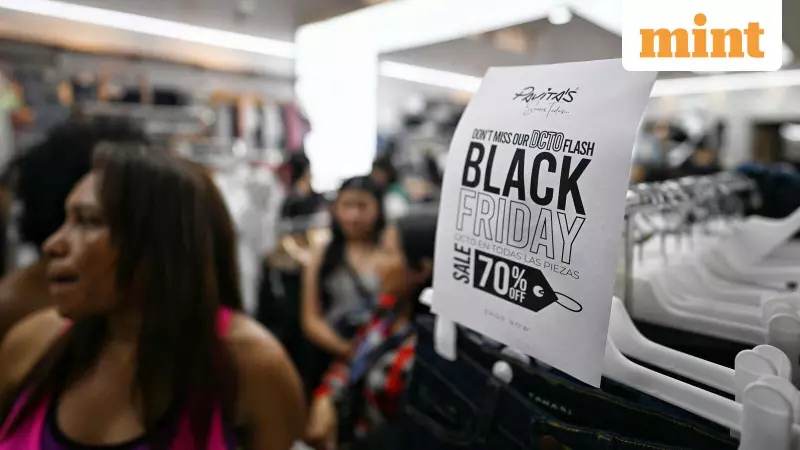
This year's Black Friday shopping extravaganza in the United States has taken a dramatic turn, with inflation-weary Americans prioritising everyday essentials over traditional luxury purchases. The annual sale event, typically known for discounted electronics and fashion items, has transformed into a necessity-hunting expedition for millions of households.
The Inflation Effect on Consumer Behaviour
Persistent inflation and rising living costs have fundamentally altered shopping patterns across America. According to recent retail data, consumers are increasingly using Black Friday discounts to stock up on groceries, household supplies, and basic necessities rather than indulging in discretionary spending.
"We're seeing a significant shift in purchasing priorities," notes retail analyst Sarah Chen. "Where consumers previously sought the latest gadgets, they're now comparing prices on laundry detergent, canned goods, and personal care products. This reflects the financial pressure many families are experiencing."
Changing Retail Landscape
Major retailers have adapted to this trend by expanding their Black Friday offerings to include deeper discounts on essential items. Grocery stores and supermarkets have joined the traditional Black Friday frenzy, offering unprecedented deals on food items and daily necessities.
- Supermarkets reporting record Black Friday traffic
- Essential categories seeing 40-60% higher sales volume
- Luxury and electronic categories experiencing slower growth
- Increased focus on value-for-money purchases
Economic Pressures Reshape Traditions
The transformation of Black Friday from a luxury shopping spree to an essential goods purchasing opportunity highlights the broader economic challenges facing American consumers. With inflation remaining stubbornly high and wage growth struggling to keep pace, households are becoming increasingly strategic about their spending.
"This isn't just about saving money—it's about survival," explains financial advisor Michael Rodriguez. "Families are using these sales events to stretch their budgets further. Buying six months' worth of toilet paper or detergent at 30% off can make a real difference in monthly expenses."
What This Means for the Future
This shift in consumer behaviour during one of America's biggest shopping events signals potential long-term changes in retail and economic patterns. As inflation continues to impact household budgets, retailers may need to reconsider their sales strategies and product offerings for future holiday seasons.
The 2023 Black Friday phenomenon serves as a clear indicator of how economic pressures are reshaping consumer psychology and spending habits across the United States.





